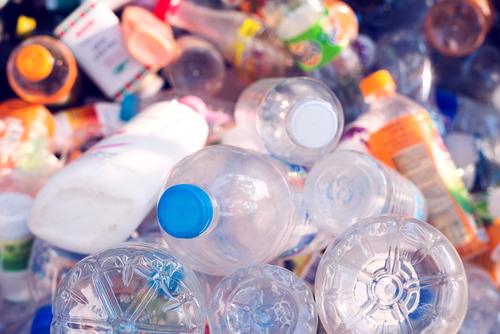The Hidden Costs of Bottled Water: Environmental Impact and Financial Burden
Bottled water has become a popular choice for many people as they look for convenient, portable hydration options. However, this seemingly harmless choice comes with a number of hidden costs that are often overlooked. In this blog, we will explore the environmental impact of bottled water as well as the financial burden it places on consumers.
Environmental Impact of Bottled Water
One of the most significant hidden costs of bottled water is its environmental impact. The production, transportation, and disposal of bottled water all contribute to pollution and resource depletion. Plastic bottles, made from non-renewable resources like petroleum, are a major contributor to the global plastic pollution crisis. According to the Earth Day Network, over 1 million plastic bottles are bought every minute around the world, and less than half of them are recycled.
In addition to the plastic waste created by bottled water, the production and transportation of bottled water also contribute to greenhouse gas emissions. The transportation of bottled water requires large amounts of fossil fuels, further contributing to climate change. According to a study published in the journal Science, the production and transportation of bottled water in the United States alone generates approximately 2.5 million tons of carbon dioxide emissions per year.
Another environmental concern related to bottled water is the depletion of freshwater sources. The extraction of water for bottling can put a strain on local water supplies, particularly in areas where water is scarce. This can have negative impacts on the environment and local communities, particularly in regions experiencing water scarcity.
Financial Burden of Bottled Water
In addition to its environmental impact, bottled water also places a significant financial burden on consumers. While the cost of a single bottle of water may seem relatively low, the expenses add up over time. According to the Beverage Marketing Corporation, the average cost of a 16.9-ounce bottle of water in the United States is around $1.50. If a person were to drink the recommended 8 glasses of water per day from bottled water, they could be spending over $500 per year on water alone.
For many people, this cost can be prohibitive, particularly for low-income individuals and families. In fact, a study published in the journal PLOS ONE found that households earning less than $25,000 per year spend a larger proportion of their income on bottled water than higher-income households. This financial burden can further exacerbate inequalities and put strain on already tight budgets.
Furthermore, the cost of bottled water does not just encompass the price of the water itself. Consumers also pay for the packaging, transportation, and marketing of bottled water, all of which contribute to the overall cost. This means that consumers are paying a premium for a product that is often no different from tap water, which is regulated by strict standards and typically much cheaper.
Alternatives to Bottled Water
Given the hidden costs of bottled water, it is important to consider alternatives that are more sustainable and cost-effective. One alternative is investing in a reusable water bottle and filling it with tap water. This simple switch can significantly reduce plastic waste and greenhouse gas emissions associated with bottled water. Additionally, using a water filter at home can improve the taste and quality of tap water, making it a more appealing option for hydration.
Another alternative to bottled water is investing in a water filtration system for the home. This can provide clean, safe drinking water without the need for plastic bottles. Additionally, supporting policies and initiatives that promote water conservation and protect freshwater sources can help reduce the environmental impact of bottled water.
Summary
The hidden costs of bottled water are significant and far-reaching. From its environmental impact to its financial burden on consumers, bottled water is not the harmless choice it may seem. By exploring alternatives and making conscious choices about our hydration habits, we can reduce the negative consequences of bottled water and protect the planet for future generations.
Need Water Purification Systems in Scottsdale, AZ?
Welcome to WES Water! Since our beginning, we have serviced Arizona with high quality, water purification systems. With over 35 years of experience, we are the industry expert that you can count on to meet your water treatment needs. We provide water conditioning and purification solutions for residential, commercial and industrial applications. All of our water systems are designed to reduce water use, which makes them environmentally friendly and can reduce the cost. Most systems require little or no maintenance. We believe that everyone should have access to high-quality, alkaline water throughout their home. Give us a call today to receive your FREE information packet!
Categorised in: Residential Systems, Water Filtration Systems

